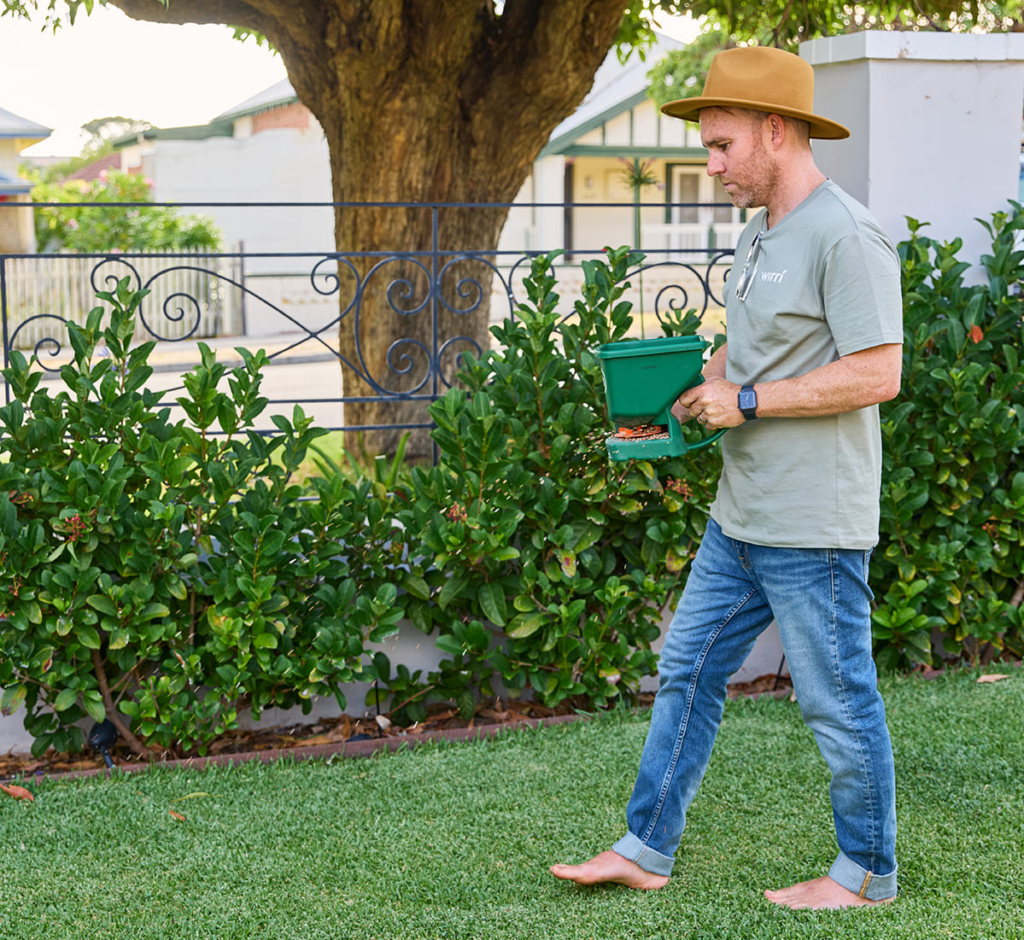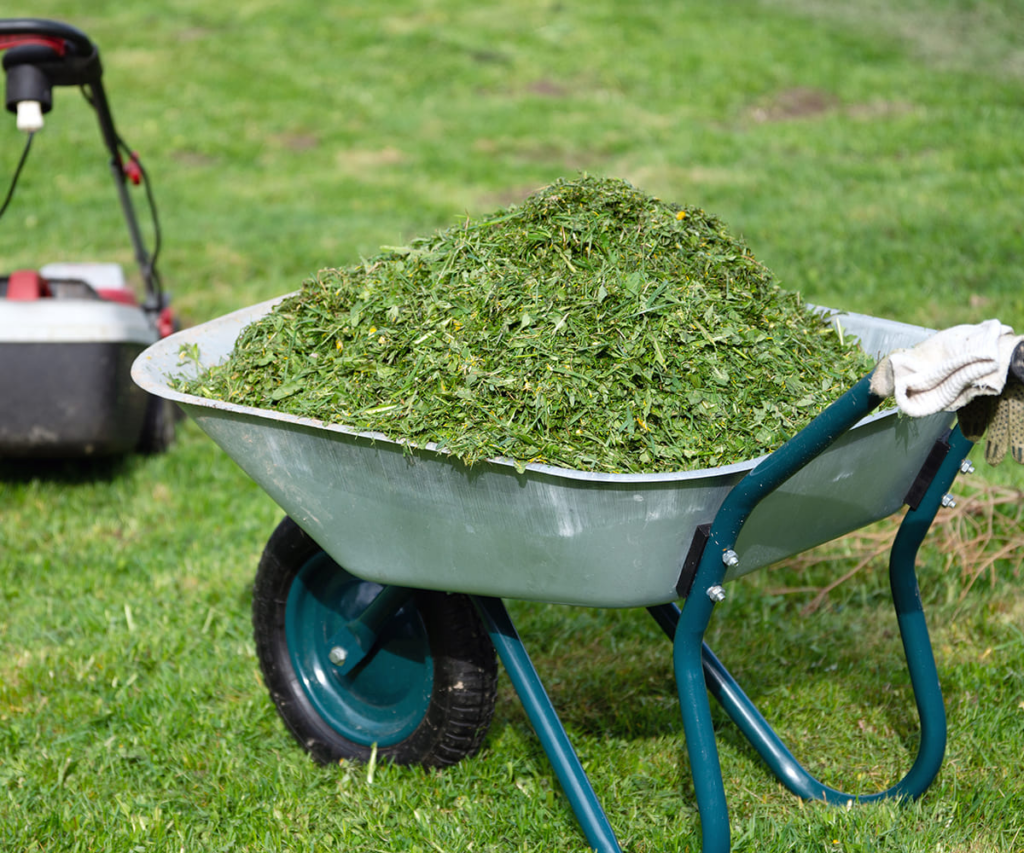Maintaining a lush, green lawn is a priority for many homeowners and businesses in Australia. However, traditional lawn care methods often rely on chemical fertilisers, synthetic pesticides, and excessive water use, all of which can have negative environmental and health impacts.
Switching to an all-natural and organic approach to lawn care not only benefits the environment but also creates healthier, more resilient lawns. Here’s why going organic is the best choice for your lawn.
The Problem with Chemical-Based Lawn Care
Conventional lawn care relies heavily on synthetic chemicals that may provide short-term benefits but can cause long-term harm.
Soil Health Degradation
Chemical fertilisers provide an immediate boost of nutrients, but over time, they degrade soil health. These fertilisers often contain high levels of nitrogen, which can create an imbalance in the soil, reducing its ability to support beneficial microorganisms. As a result, the soil becomes dependent on synthetic inputs to sustain grass growth.
Water Contamination
Excess fertilisers and pesticides can leach into groundwater or run off into nearby water sources, contributing to pollution. This contamination affects aquatic ecosystems and can even make its way into drinking water supplies, posing risks to human and animal health.
Harm to Beneficial Organisms
Chemical pesticides and herbicides don’t just target pests and weeds—they also harm beneficial insects, soil microbes, and earthworms. These organisms play a vital role in breaking down organic matter, aerating the soil, and maintaining a balanced ecosystem. Without them, lawns become more susceptible to disease and pests.
The Benefits of Organic Lawn Care

An organic approach to lawn care focuses on working with nature rather than against it. Here are some of the key benefits of switching to all-natural methods.
Improved Soil Quality
Organic lawn care emphasises feeding the soil rather than just the grass. By using natural fertilisers like compost, manure, and seaweed extracts, you can build healthy soil that retains moisture, supports beneficial organisms, and provides nutrients in a slow, sustainable manner. Over time, this leads to a self-sustaining lawn that requires fewer inputs.
Reduced Water Usage
Healthy, organic soil has better moisture retention, reducing the need for frequent watering. Lawns maintained with organic practices develop deeper root systems, making them more resilient during dry spells. This is particularly important in Australia, where drought conditions can make excessive water use unsustainable.
Safer for Families and Pets
One of the biggest concerns with conventional lawn care is exposure to toxic chemicals. Children and pets who play on chemically treated grass can absorb harmful residues through their skin or ingestion. Organic methods eliminate this risk, creating a safer outdoor space for everyone.
Encourages Biodiversity
A naturally maintained lawn supports a wider range of beneficial insects, birds, and soil organisms. Pollinators like bees and butterflies thrive in organic environments, helping to improve biodiversity in your garden and surrounding areas.
Key Steps to Transitioning to Organic Lawn Care
Switching to an organic approach doesn’t happen overnight, but with a few key changes, you can set your lawn on the path to long-term health and sustainability.
Ditch the Chemicals
The first step is to stop using synthetic fertilisers, pesticides, and herbicides. Instead, look for natural alternatives such as neem oil for pest control, vinegar-based solutions for weed management, and compost for fertilisation.
Improve Soil Health
Healthy soil is the foundation of a thriving organic lawn. Regularly aerate your soil to improve oxygen flow, add organic matter like compost or worm castings, and use mulches to retain moisture and suppress weeds.
Choose the Right Grass
Not all grass varieties are well-suited to organic care. Choose native or drought-resistant grasses that require less fertiliser and water. Varieties like Buffalo, Kikuyu, and Couch grass are excellent choices for Australian lawns.
Mow Smart
Mowing practices can have a big impact on lawn health. Keep your mower blades sharp to avoid tearing the grass, and mow at a higher setting to promote deeper root growth. Leaving grass clippings on the lawn also acts as a natural fertiliser.
Water Wisely
Instead of frequent shallow watering, aim for deep, infrequent irrigation. This encourages grass roots to grow deeper, making them more drought-resistant. Water early in the morning to minimise evaporation.
Organic Lawn Care Solutions

There are many effective organic solutions available to support healthy lawn growth. Here are a few natural alternatives:
Compost and Organic Fertilisers
Instead of synthetic fertilisers, use compost, aged manure, seaweed extracts, or rock minerals to feed the soil. These provide a slow release of nutrients without the risk of chemical buildup.
Natural Pest Control
Encourage natural predators like ladybirds and lacewings to control pest populations. You can also use neem oil or garlic spray to deter harmful insects without harming beneficial ones.
Weed Management
Hand weeding is the most effective way to remove unwanted plants without harming the surrounding grass. Mulching, corn gluten meal, and boiling water can also be used to suppress weed growth naturally.
The Future of Lawn Care is Organic
As awareness grows about the environmental and health impacts of chemical lawn treatments, more people are turning to organic alternatives. With a focus on soil health, water conservation, and natural pest management, organic lawn care is a sustainable and practical choice for Australian homeowners and businesses. By making the switch, you can enjoy a beautiful, resilient lawn while protecting the environment for future generations.
Ready to Make the Switch?
If you’re looking for an easy way to transition to organic lawn care, start small and make gradual changes. Begin by reducing the use of chemical fertilisers and pesticides, replacing them with natural alternatives like compost and organic pest repellents. Improve your soil’s health by adding organic matter, aerating regularly, and choosing the right grass variety for your climate.
Adjust your mowing and watering habits to support deeper root growth and water conservation. By making these small yet impactful adjustments, you’ll notice improvements in your lawn’s health, resilience, and overall sustainability. Over time, your lawn will thrive naturally, without the need for synthetic inputs.





